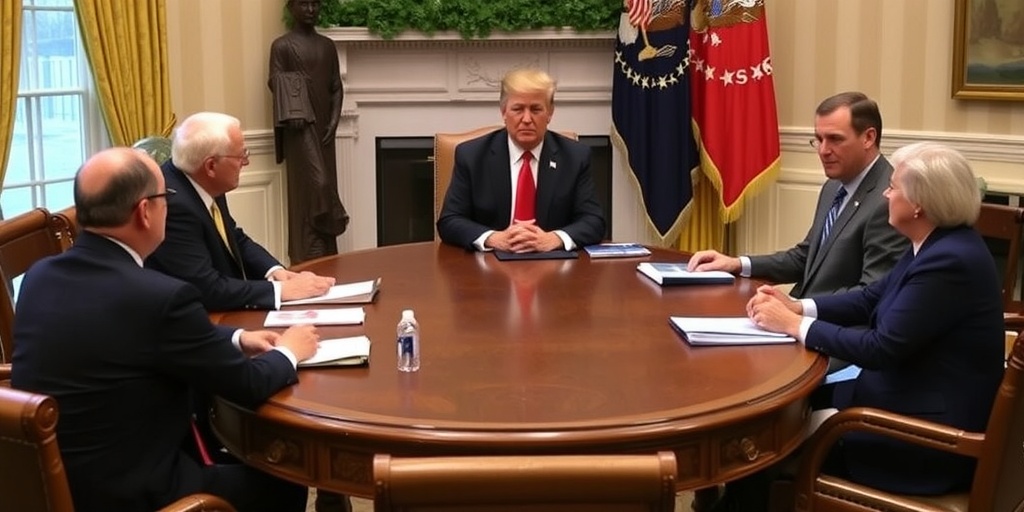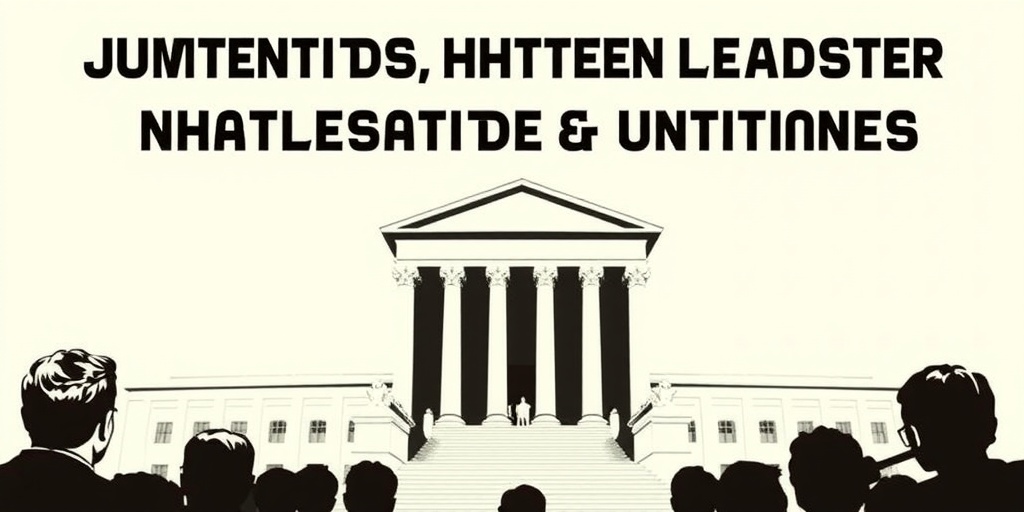Now Reading: Trump Proposes Tax Cuts for New Yorkers in Meeting with GOP Lawmakers
-
01
Trump Proposes Tax Cuts for New Yorkers in Meeting with GOP Lawmakers
Trump Proposes Tax Cuts for New Yorkers in Meeting with GOP Lawmakers

Trump Urges House Republicans to Consider Increased SALT Deduction Amid Ongoing Tax Reform Discussions
President-elect Donald J. Trump has reaffirmed his commitment to revisiting a significant aspect of the 2017 tax law, specifically the state and local tax (SALT) deduction. During a recent gathering at his Florida estate, Trump engaged with more than a dozen House Republicans, encouraging them to devise a plan that would enhance the SALT deduction cap, which is currently set at $10,000. This information was relayed by four lawmakers who participated in the meeting.
The SALT deduction, which allows taxpayers to deduct certain state and local taxes from their federal taxable income, was capped by Republicans during Trump’s first term. This $10,000 limit was implemented as part of a broader strategy to offset the financial implications of the 2017 tax overhaul pushed through Congress predominantly by Republican lawmakers. The capping of the SALT deduction has triggered discontent among legislators from both major political parties, particularly those representing high-tax states such as New York and New Jersey. These lawmakers have made it their political mission to restore this vital deduction, which residents in their states have increasingly viewed as beneficial.
The ongoing efforts to modify or reinstate the SALT deduction have garnered momentum following Trump’s declarations during the presidential campaign, wherein he promised to “get SALT back.” However, House Republicans demanding an alteration to the current SALT deduction limit are still debating the specifics of any proposed changes. Within this group, opinions vary widely, with some members advocating for raising the limit to as high as $200,000, while others propose more conservative adjustments. This latter group suggests a smaller increment in the deduction itself, which could be gradually increased to align with inflation rates over time. Currently, the $10,000 cap is applicable to both individuals and married couples, but there appears to be a broad agreement among Republicans that married couples should be eligible for a higher deduction compared to individuals.
During the aforementioned meeting on Saturday, lawmakers representing New York, New Jersey, and California shared various proposals with Trump, discussing potential strategies to ameliorate the impact of the SALT deduction cap. One interesting concept that emerged was the idea of incentivizing local government leaders to delay potential tax hikes in exchange for the opportunity to increase SALT deductions for their constituents. Representative Nicole Malliotakis, a New York Republican and member of the influential Ways and Means Committee, highlighted this proposal, remarking, “Maybe we increase the deduction, but maybe the deduction goes even higher if your state freezes or lowers the tax rate.”
Overall, the atmosphere at the meeting was one of collaboration, with Trump listening attentively to the suggestions and insights from House Republicans while being served coconut shrimp and Trump-branded bottled water throughout the hourlong session. He encouraged the group to reach a consensus on how best to approach the SALT deduction issue. However, any change proposed would need to secure almost unanimous support from the broader congressional Republican caucus, many of whom are wary about extending tax relief predominantly to affluent residents of states led by Democratic governors.
The financial implications of lifting the SALT deduction cap are significant, presenting a challenge for Republicans who are already contending with the fiscal ramifications of other tax legislation they plan to introduce in the upcoming year. As lawmakers navigate these discussions, they are also considering alternative approaches to manage costs, such as limiting the extent to which businesses can deduct state and local taxes from their federal tax obligations.
“Ultimately, we can’t have an unlimited deduction; we still need to set a cap,” emphasized Representative Jeff Van Drew, a Republican from New Jersey who was present at the meeting. “Therefore, we must strive to find that sweet spot that balances fairness with fiscal responsibility.”
In addition to the SALT discussions, attendees also encouraged Trump to pursue federal measures to disrupt New York City’s proposed congestion pricing plan, reflecting the broader concern over state and local tax policies and their implications for residents.
As the conversation around the SALT deduction continues to evolve, House Republicans remain focused on finding a solution that not only satisfies their constituents in high-tax states but also aligns with the broader fiscal strategies of the party. The coming weeks will likely see further developments as these discussions advance, highlighting a key area of legislative focus for the incoming administration.
Stay Informed With the Latest & Most Important News
Previous Post
Next Post
-
 01New technology breakthrough has everyone talking right now
01New technology breakthrough has everyone talking right now -
 02Unbelievable life hack everyone needs to try today
02Unbelievable life hack everyone needs to try today -
 03Fascinating discovery found buried deep beneath the ocean
03Fascinating discovery found buried deep beneath the ocean -
 04Man invents genius device that solves everyday problems
04Man invents genius device that solves everyday problems -
 05Shocking discovery that changes what we know forever
05Shocking discovery that changes what we know forever -
 06Internet goes wild over celebrity’s unexpected fashion choice
06Internet goes wild over celebrity’s unexpected fashion choice -
 07Rare animal sighting stuns scientists and wildlife lovers
07Rare animal sighting stuns scientists and wildlife lovers





















